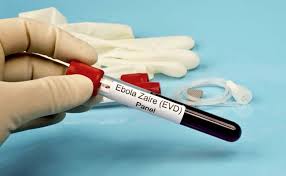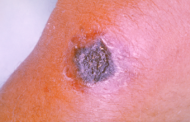By Stephen Luntz
The Centers for Disease Control and Prevention (CDC) have warned the public that the Ebola virus may survive in semen long after it is undetectable in other bodily fluids. Consequently, they have recommended that men who survive Ebola use condoms after recovery until more is known about transmission through this mechanism.
The announcement came after a Liberian woman contracted Ebola, apparently through sex with a man who had recovered from the disease. Tests of the man’s semen revealed the presence of the virus five months after his recovery, a point at which transmission was previously thought highly unlikely.
In a document cheerily titled “You’ve survived Ebola! What’s next?,” the CDC warns: “Men, to protect your partner, don’t have sex (oral, vaginal, or anal) with anyone till we know more.” However, mindful of the dismal success rate of abstinence-only sex education, the booklet adds. “If you do have sex, use a condom the right way every time. There is a small risk of spreading Ebola if you use condoms.” The document also notes that the virus can survive in breast milk after symptoms have passed.
Although Ebola was known to persist in semen longer than other bodily fluids, it was thought that three months was a long enough recovery period to prevent transmission.
However, according to a paper in Morbidity and Mortality Weekly Report, the woman who became infected had no other known potential sources of transmission, and genetic sequencing of the virus that infected her showed mutations that matched those from the man’s semen, while being different from other recent cases.
Besides raising new possibilities for further outbreaks, an unfortunate aspect of this discovery is that it may encourage stigmatization of Ebola survivors. During the peak of the outbreak, survivors reported being shunned, despite the fact that their hard-won immunity in fact made them apotential barrier to the further spread of the disease.
This is the only new case of Ebola recorded in Liberia since mid-February. New cases in Sierra Leone and Guinea are running at a rate of between 30 and 40 a week. While this is less than a tenth the rate at the peak of the epidemic, the World Health Organization is concerned that progress may have stalled over the last month, with the number of new cases a week now fairly stable.















